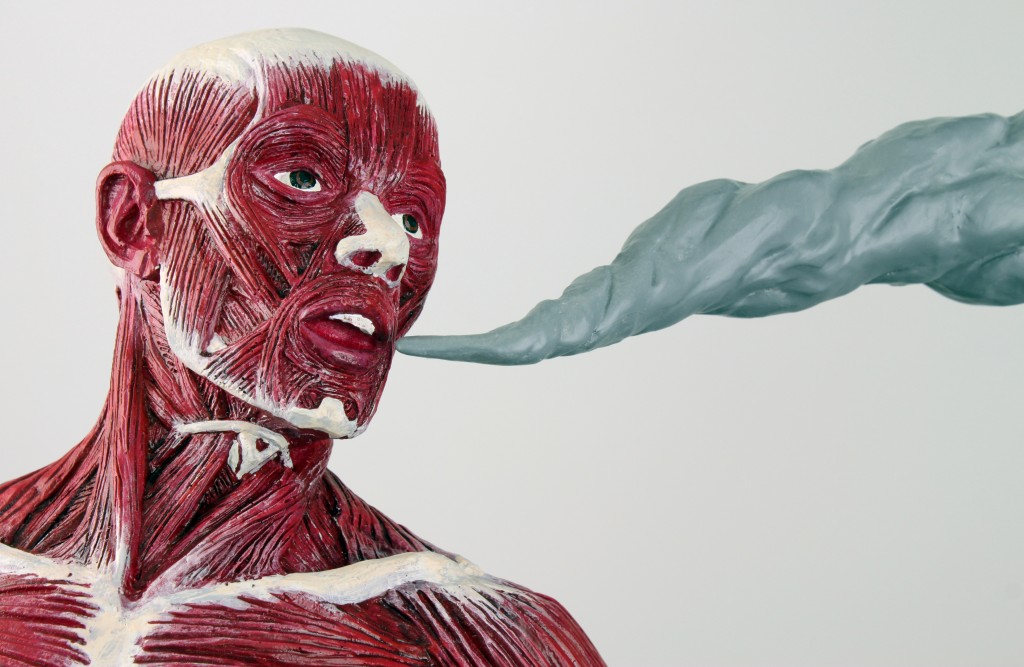Friday January 27, 2012 through Thursday March 29, 2012
200,000 years ago, the first Homo Sapiens had to face the problem of mortality, but under radically different circumstances. As our conditions have evolved and our narratives have become more complex, our collective understanding of mortality has changed. Human innovation has transformed our world, providing a higher standard of living and countless methods of prolonging human existence. Our present day technologies have even advanced to the point that some degree of immortality seems plausible through cryogenic preservation and reanimation, or the digital replication of consciousness, or the possibility that life-saving organ transplants will someday become as routine as the 10-minute oil change. These advances in science and medicine make us feel that we have some degree of control over death, but those of us living today will probably not be around long enough to take advantage of these technologies, so we must each come to terms with mortality.
One who contemplates the significance of death in today’s ever-shrinking global community will have no shortage of religious, philosophical, or scientific narratives to consider. In fact, people today are bombarded with such a wide variety of perspectives on mortality that it can be difficult to negotiate the incongruities and determine a particular vantage point. It was my desire to better understand what death means in our contemporary era that led me to create this body of work.
Image: The Two Deaths of Socrates (detail), 2011, dimensions variable (each figure is 32” tall), cast plastic, expanding foam, steel, wood, and other materials


